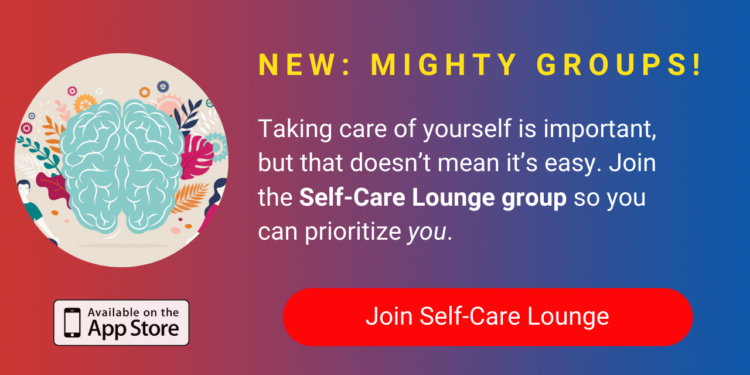The holidays are a time of gathering, and even though the coronavirus (COVID-19) pandemic has put a real crimp in our plans, chances are you’re going to spend time with friends, family and neighbors as you celebrate the season. Whether you’re meeting outside, in small groups or online, it’s a good idea to prepare for conversations about mental health.
As someone who lives with anxiety and depression, I realize my loved ones might not know what to say when they see me. This was a tough year, and I’m sure they’re worried about me. Still, I know that some of what I hear might make me cringe just a bit, so I’m considering how to handle it.
I try to remember that most people don’t realize what they’re doing when they trivialize, dismiss or simply fail to appreciate what it’s like to live with a mental health condition, especially during this so-called “happiest” time of the year.
Here are five things I hope your loved ones won’t say, but might — and some reflections that might help you respond in a thoughtful, empowered way.
1. “It’s been a terrible year for everyone’s mental health.”
True enough, but those of us who live with chronic mental health conditions have been affected in a much deeper way. When I hear this, I’m planning to remind myself that people facing anxiety or depression for the first time may feel utterly lost. Even though it’s annoying to hear them make a loose comparison of their experience (or someone else’s) with mine, I can pivot and ask them how they’re feeling, which may make for a more useful conversation.
2. “You look like you’re doing all right … ”
Nice to hear, but of course, depression doesn’t always show on the outside. This simply reflects the fact that my loved ones are trying to compliment me on the only evidence they can see. They may have no idea what’s under the surface. I can smile, thank them for their concern, and ask how 2020 is treating them. (Pretty sure they’ll be glad to share their own feelings and experiences!)
3. “I heard you’ve been depressed. My neighbor was diagnosed, too, and …”
Next thing you know, your loved one is spilling out someone else’s mental health story. This can feel awful for a number of reasons. You may prefer not to hear about anyone else’s pain, for example. You could just say, “Wow, that sounds hard. I hope she’s doing better, ” then move on — or tell your loved one you feel compassion for her neighbor, but you’re trying to focus on happy thoughts. (This helps remind the speaker that you have needs, too — and you definitely don’t need to be called on as a spokesperson for the Depression Club, especially at the holidays.)
4. “Sometimes, feeling sad has a silver lining.”
This comment might come from a caring person who has no idea what it’s like to live with a chronic mental health condition. Most people don’t realize, for example, that sad moods don’t begin to compare to clinical depression — or that everyday stress isn’t the same as having an anxiety disorder. When the conversation turns to hidden blessings, I usually just say, “You’re right,” and smile, then let silence move us on to the next topic.
5. “Are your medications helping?”
I think this question is just plain nosy, but I guess it’s a sign of caring, too. When I hear something like this, I also need to remind myself that talking about mental health shouldn’t be any more troubling than discussing physical health. If the questions get too invasive, of course, I can redirect things by saying: “I’m feeling really good today. Thanks for asking!”
This brings up a very crucial point: You don’t owe anyone an explanation of how you’re feeling right now. If it helps to talk about your mental health, do it. But if you’d really rather not, be honest. People usually respond well if you offer a simple explanation, then just move on to the next subject.
And in those rare moments when someone is being a total jerk, there’s always this convenient little move: “Excuse me for just a minute.” No need to feel guilty for walking (and staying) away from stigma or negativity. It’s your holiday, too, and you deserve to enjoy it.
Getty Images photo via encrier


